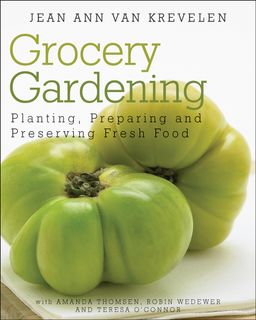 |
| Photo by Paul + photos = moody on Flickr |
"He beheld great fields of Indian corn,
and the yellow pumpkins lying beneath them,
turning up their fair round bellies to the sun."
Washington Irving's The Legend of Sleepy Hollow
Pumpkins have reigned in our autumn cooking, long before they started to appear on our Thanksgiving tables in the form of delicious pies. An important staple in Native Americans' diets, pumpkins were roasted, boiled and stewed for different dishes in earlier times. In the Southwestern United States, pumpkin parts were found in the ancient ruins of cliff dwellers.
According to the USDA Cooperative State Research Service, pumpkins were part of these early native cultures' multiple cropping system of corn, beans and squash. In Latin America, you can still find these food combinations enjoyed in native dishes today.
Now a symbol of Halloween, pumpkins played a particularly scary role in Washington Irving's 19th-century classic, The Legend of Sleepy Hollow. Many a child has shivered in the night thinking of that Headless Horseman and his flaming pumpkin. They never did find Ichabod Craine. Just his hat. And a shattered pumpkin.
It seems a shame that pumpkins should be considered scary after all these years.
Pumpkins certainly aren't scary to eat. Highly nutritious and delicious, pumpkins are packed with vitamin A in the form of cancer-fighting beta carotene, not to mention the B complex and C vitamins, as well as phosphorous, potassium, calcium and iron.
Plus, you can use the smaller pie-sized pumpkins in almost all the same recipes that call for winter squash. Instead of potatoes, try mashing cooked pumpkins with different toppings like feta cheese, nuts, yogurt, cinnamon, cumin or other spices for a healthy side dish.
Or, you can always make pumpkin pie ... a culinary favorite at this time of year.
As Irving described in The Legend of Sleepy Hollow, "And then there were apple pies, and peach pies, and pumpkin pies; besides slices of ham and smoked beef..."
Here's a recipe for making homemade pie from a real pumpkin (not canned) from PickYourOwn.org.
Or, you can always make pumpkin pie ... a culinary favorite at this time of year.
As Irving described in The Legend of Sleepy Hollow, "And then there were apple pies, and peach pies, and pumpkin pies; besides slices of ham and smoked beef..."
Here's a recipe for making homemade pie from a real pumpkin (not canned) from PickYourOwn.org.
To grow this warm-season plant, you'll have to wait until your last average frost date has passed next spring. Direct seed pumpkins in full sun in rich, fertile soil with excellent drainage. The optimum soil pH level is between 6.0 to 6.5. Avoid planting pumpkins in the same spot where squashes and melons have grown over the last three years. Water close to the roots and avoid wetting the foliage, particularly in the evening.
More on growing pumpkins from North Carolina Cooperative Extension. Learn about crop rotation.










Thanks for all of the great information on pumpkins. They are one of my favorite signs of fall. Pumpkin pie is yummy to eat also! Carla
ReplyDeleteI agree, Carla. Plus, pumpkins are so healthy and great for storing at home for the colder months when less seasonal produce is available. Thanks for stopping by. Teresa
ReplyDeleteGreat post! I love cooking with pumpkins and they really are so good for you.
ReplyDeletePumpkins just say autumn to me like nothing else. Great post and I love the top picture so much :)
ReplyDeleteThanks Suzanne and Ilona for your messages. Pumpkins are so easy to love. Teresa
ReplyDelete